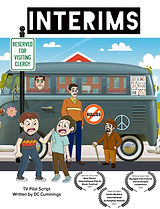Visiting Professor - Post-Script
- Jul 25, 2018
- 3 min read
I was in a car for a long time today and it gave me a chance to think about the visit to WPTV-TV. There are a few items that I didn’t write about that I think would be important discussion points at the AEJMC Conference.
I consider “classroom negotiations” as the way we try to convince students to buy into doing things. You know what I mean. There is always that one outlier who thinks they know so much they can’t buy in to your methods. They are the ones that disrupt the team concept in the classroom. The outliers will act as if your methods are incredibly out of date and not relevant to them. I enjoyed the visit to WPTV-TV because it gave me some perspectives on our graduates.
WPTV-TV’s News Director, Nicole Hogensen filled me in on some issues she faces when she deals with younger employees. She tells me that coaching them individually works better and they don’t respond well in a group. I do my best to give my journalism students one-on-one instruction. It is often difficult in large classrooms because the outliers will fade to the corners of the room. Once my students begin to produce newscasts, the one-on-one is what we do but they really could use more one-on-one. Somehow, I need to begin one-on-one earlier but it is difficult to manage the time and the pack of the other students. Hogensen confirms what I see in my students. The one-on-one works. Simple instruction is one thing, but being there when they apply what you taught them is another. When I find them in the field and see what they are doing right and wrong it helps them with understanding. But, finding the time outside of class is difficult and most of my students are producing their work outside of class. In a perfect world, you'd like to go to where they are working on a story but that's very difficult to do. Any suggestions on how to do be in all places at once and not working 24/7?
Hogensen tells me that the younger employees are more sensitive than other generations she has managed. I’m a surly old man and my sensitivity has a timer. At one point, I revert back to the echoes of my old news directors and I burst out with a range of epithets that I think are effective. I may be caught in a generational shift but I know that politicians, lawyers and cops won’t worry about their sensitivity. I’d rather toughen them up. During these conversations I feel old. I feel as if I lived in a movie that no one wants to see any more. But, at the same time, those old movies have truth. I can’t see Woodward and Bernstein being great reporters if they didn’t get stern instruction by Ben Bradlee.
The most shocking revelation that I heard was that young employees bill the station for tracking leads, enterprising stories, or coming up with morning meeting stories if they do it during their off time. If they are off the clock, they bill the station. What?! The reporters and MMJs feel their job is a 9-5 or whatever shift they work. On what planet does a good reporter work only during their shift?
Here we are in a time when the future journalist doesn’t do well in groups, has a thin skin and doesn’t want to exert themselves when trying to find a story?
If any of you face some of these issues, I’d like to discuss your strategies and ideas about how we can create journalist ready for the real world plus, cops, crooks, and politicians.








Comments